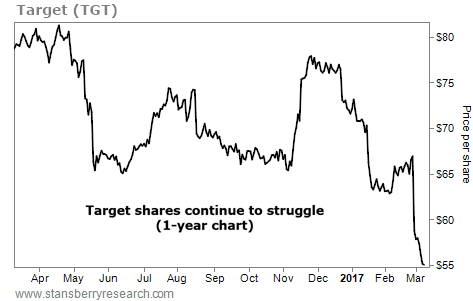| Home | About Us | Resources | Archive | Free Reports | Market Window |
How to Inherit 20 Years of Business Know-How in a Single YearBy
Friday, March 10, 2017
The big problem everyone has when starting a new business is ignorance.
New entrepreneurs don't know how the business should work – where to go for customers, how much to charge for the product, how many customers are needed for the business to become profitable, and so on...
The solution to ignorance is learning. And there are basically two ways to learn about a business: (1) by attending seminars, taking programs, and reading books – all of which provide generalized, secondhand knowledge about the industry – and (2) by interacting personally with people who are in business and getting firsthand advice from them.
I once had the pleasure of mentoring a young man many years ago. He had started a new division in a publishing company for which he worked. He was "full of energy," as he told me, but "knew almost nothing about how to start the business."
His solution was simple: He would ask everybody he could how to do it.
"Talking with people, at least once a week, about what to do next kept me from wasting energy on ideas that wouldn't work," he said. "I absorbed 20 years' worth of publishing experience in one year. And I did it by constantly reaching out to my peers and my mentors about every important marketing and product decision. Their ideas didn't drown my vision, but helped enormously to refine my efforts and make them much more successful."
He was very clever in the way he took advantage of mentoring. And I'm sure that was a big factor in his success. (In less than seven years, he grew his division from nothing to more than $20 million in annual revenue. Today, it is a $100 million, highly profitable business.)
Here is what he did:
He was not afraid to ask questions, even obvious questions. At his age, I was always afraid to ask questions because I didn't want to show my ignorance. Showing my ignorance was tantamount to admitting weakness. Since I imagined myself to be in a survival-of-the-fittest career, I pretended I had no weaknesses. I didn't understand one thing at the time... And that was there were people in my business who wanted me to learn – who knew I was ignorant – and yet, they valued me anyway. At the top of that list was my boss, the guy who hired me and had a vested interest in my success. He was not only open to questions, he also welcomed them.
I was that person for this young man. I was thrilled to answer every question he asked and some he didn't ask but should have – and I always made sure I gave him a full and complete answer. His success was my success, too.
During his year as my protégé, we spent many hours together. At the end of our mentorship, I felt he had absorbed almost everything I knew about his type of business.
I wasn't his only mentor. He had many. He asked questions to lots of other people who had different perspectives on the business, including colleagues that I introduced him to. (He would take their business cards and follow up with them later.)
Although his primary mentors were experienced businesspeople who had already done what he wanted to do, he had all sorts of temporary mentors, including competitors and even his own employees. Before he began a project, he sought opinions about it from anybody and everybody who might have something helpful to say.
He realized that the proper and just reward for a person giving advice is getting thanks. And he was always good about thanking me and his other mentors... and maintaining a positive relationship. Most of the time, he sent a personal note, which was thanks enough. Sometimes, he sent personal gifts. (Bottles of wine and hand-rolled cigars were my good fortune.)
He made his own decisions and took responsibility for them. He knew that the ultimate responsibility for the success of his business laid with him, so he always made it a point to review all the advice he had received and make a decision that was his own. Often, the decision was a combination of advice he had gotten and some unique twist that came from his own imagination. After making a decision, he took full responsibility for it. If it worked, he gave credit to everyone who had helped him make it. If it failed, he accepted the loss as his.
If you follow these steps, you'll spend your energy doing what works for the experts. You'll acquire the kind of business know-how that it usually takes decades to discover. And most likely, you'll enjoy the same success as the man I once mentored – not just in business, but in anything else you pursue.
Regards,
Mark Ford
Further Reading:
"Charismatic people seem to be born that way," Mark writes. But if you practice a simple set of skills, you can boost your charisma and get more out of your business relationships. Learn all 15 tips in his classic essay right here.
"It's not fun to realize, in the midst of your life, that you haven't acquired the wealth you want," Mark says. But wealth-building doesn't have to take a lifetime. With planning and hard work, you can become financially independent in seven years or less. Read more here.
Market NotesTHIS BLUE-CHIP RETAILER CONTINUES TO TUMBLE Today's chart proves that even high-quality businesses sometimes go through rough patches...
We're taking a close look at blue-chip retail titan Target (TGT). The $30 billion company is one of the top retailers in the U.S. Over the last year, it recorded $70 billion in sales. It also rewards shareholders, having increased its dividend every year for more than four decades.
But even Target isn't immune to a pullback. Earlier this year, it reported earnings that fell short of analyst expectations. Facing increased competition from uber-successful online retailer Amazon (AMZN), Target's fourth-quarter sales were weaker than expected.
As you can see from the following chart, investors have been running for the exits... Target shares are down nearly 25% through the first quarter of 2017 and are now trading at their lowest levels in nearly five years. After the selloff, the stock yields a huge 4.4%. But until Target shows it's turning things around for the better, shares may continue to drift lower...
 |
Recent Articles
|



